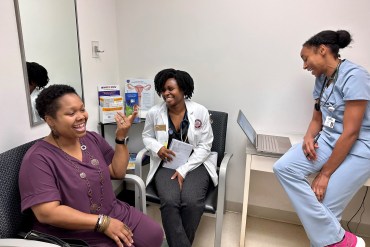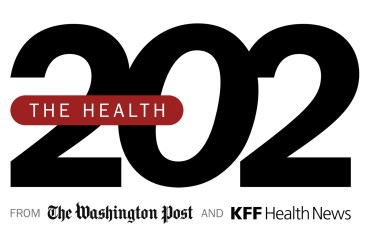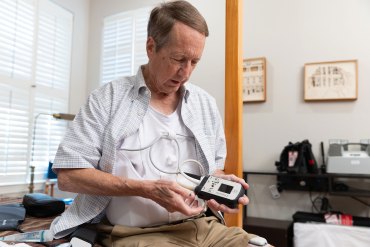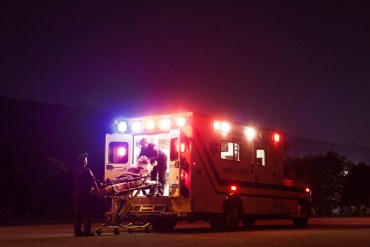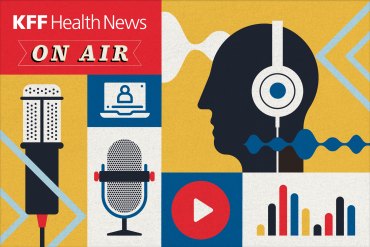Hoping to Clear the Air in Casinos, Workers Seek to Ban Tobacco Smoke
Casinos in several states are fighting efforts to ban smoking, and trying to roll back existing anti-smoking laws. One planned facility even moved outside a city’s limits because of voter-approved smoking restrictions.
Rising Malpractice Premiums Price Small Clinics Out of Gender-Affirming Care for Minors
Even in states where laws protect minors’ access to gender-affirming care, malpractice insurance premiums are keeping small and independent clinics from treating patients.
States Begin Tapping Medicaid Dollars to Combat Gun Violence
The Biden administration is allowing states to use money from the insurance program for low-income and disabled residents to pay for gun violence prevention. California and six other states have approved such spending, with more expected to follow.
Listen to ‘Tradeoffs’: How the Loss of a Rural Hospital Compounds the Collapse of Care
Six years ago, the hospital in Fort Scott, Kansas, shuttered, leaving residents in the small community without a cornerstone health care institution. In the years since, despite new programs meant to save small hospitals, dozens of other communities have watched theirs close.
Woman Petitions Health Insurer After Company Approves — Then Rejects — Her Infusions
Even people with good insurance aren’t guaranteed affordable care, as this KFF Health News follow-up to one patient’s saga shows.
Can Family Doctors Deliver Rural America From Its Maternal Health Crisis?
Family medicine doctors already deliver most of rural America’s babies, and efforts to train more in obstetrics care are seen as a way to cope with labor and delivery unit closures.
The Year in Opioid Settlements: 5 Things You Need to Know
In the past year, opioid settlement money has gone from an emerging funding stream for which people had lofty but uncertain aspirations to a coveted pot of billions being invested in remediation efforts. Here are some important and evolving factors to watch going forward.
Deep Flaws in FDA Oversight of Medical Devices, and Patient Harm, Exposed in Lawsuits and Records
Thousands of medical devices are sold, and even implanted, with no safety tests.
What a Bison Goring Can Teach Us About Rural Emergency Care
Millions of Americans live in “ambulance deserts” — areas that are more than a 25-minute drive to the nearest emergency medical services (EMS) station. The most rural areas can be more than an hour away from help. These sparsely populated communities can have trouble sustaining ambulance services, if small patient volumes and low reimbursements […]
Patients Facing Death Are Opting for a Lifesaving Heart Device — But at What Risk?
The HeartMate 3 is considered the safest mechanical heart pump of its kind, but a federal database contains more than 4,500 reports in which the medical device may have caused or contributed to a patient’s death.
‘They See a Cash Cow’: Corporations Could Consume $50 Billion of Opioid Settlements
As opioid settlement dollars land in government coffers, a swarm of businesses are positioning themselves to profit from the windfall. But will their potential gains come at the expense of the settlements’ intended purpose — to remediate the effects of the opioid epidemic?
‘Financial Ruin Is Baked Into the System’: Readers on the Costs of Long-Term Care
Thousands of people shared their experiences and related to the financial drain on families portrayed in the “Dying Broke” series, a joint project by KFF Health News and The New York Times that examined the costs of long-term care.
As Foundation for ‘Excited Delirium’ Diagnosis Cracks, Fallout Spreads
Major policy changes and disavowals have made this a watershed year for curbing the use of the discredited “excited delirium” diagnosis to explain deaths in police custody. Now the ripple effects are spreading across the country into court cases, state legislation, and police training classes.
People With Disabilities Hope Autonomous Vehicles Deliver Independence
A pilot project in northern Minnesota aims to pave the way for fully autonomous vehicles to offer independence for people who can’t drive.
Journalists Delve Into Gun Violence, Medicaid’s ‘Unwinding,’ Opioid Lawsuits, and More
KFF Health News and California Healthline staffers made the rounds on national and local media this week to discuss their stories. Here’s a collection of their appearances.
Dodging the Medicare Enrollment Deadline Can Be Costly
As open enrollment ends, many people are tuning out. They could wind up with a surprise next year: higher costs and less access to health care providers.
Food Sovereignty Movement Sprouts as Bison Return to Indigenous Communities
Native American leaders see bison herds and ancestral gardens as ways to bring healthy eating to their people.
Grassroots College Networks Distribute Emergency Contraceptives on Campus
Peer-to-peer efforts can meet a clear need among students whose colleges may not make sexual health products accessible or affordable.
Many People of Color Worry Good Health Care Is Tied to Their Appearance
Many people from racial and ethnic minority groups brace themselves for insults and judgments before medical appointments, according to a new survey of patients that reaffirms the prevalence of racial discrimination in the U.S. health system.
Doctors on (Video) Call: Rural Medics Get Long-Distance Help in Treating Man Gored by Bison
A rural South Dakota medic said using an ambulance video system to communicate with a doctor gave him peace of mind as he treated a patient who was seriously injured when gored by a bison.









